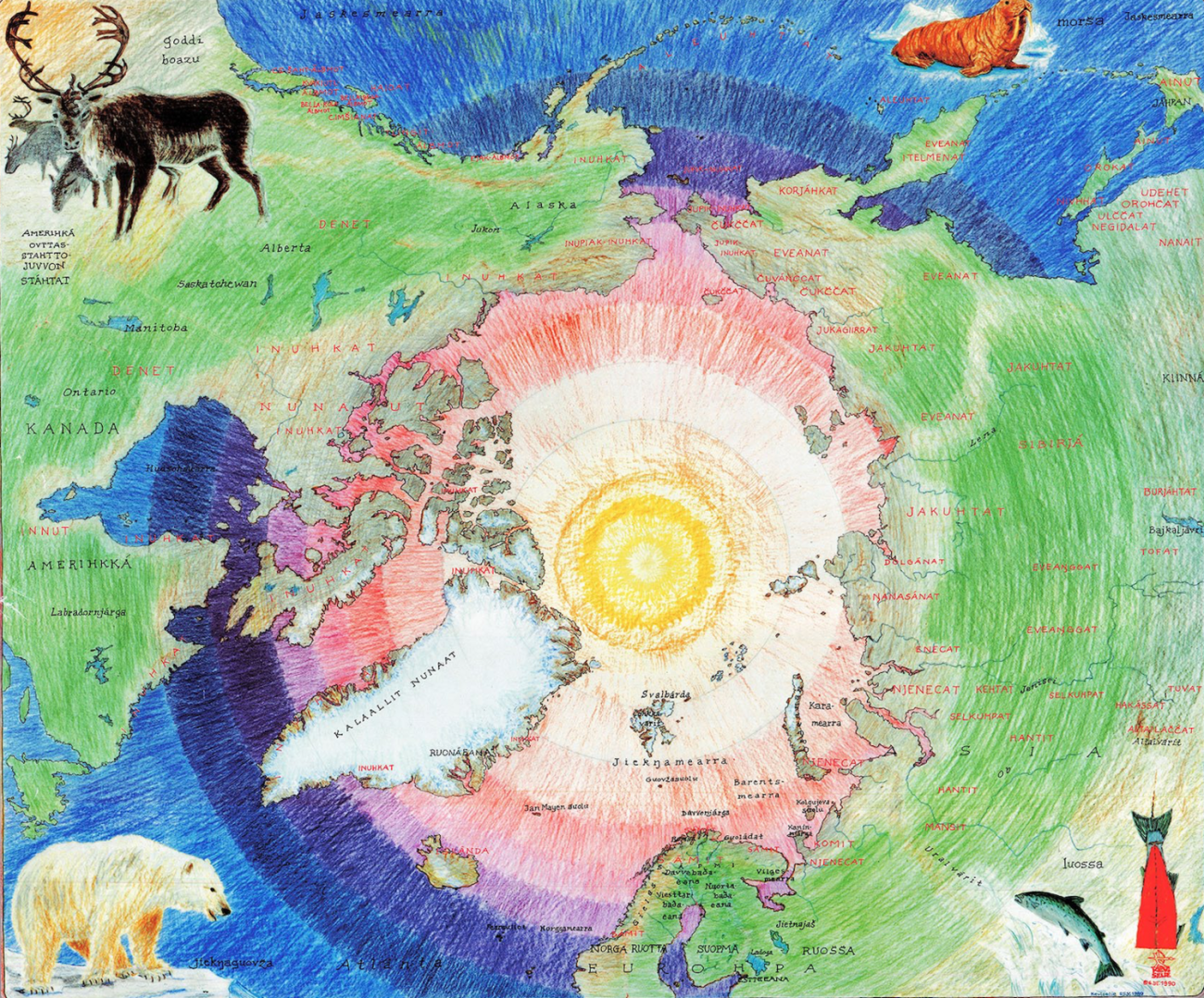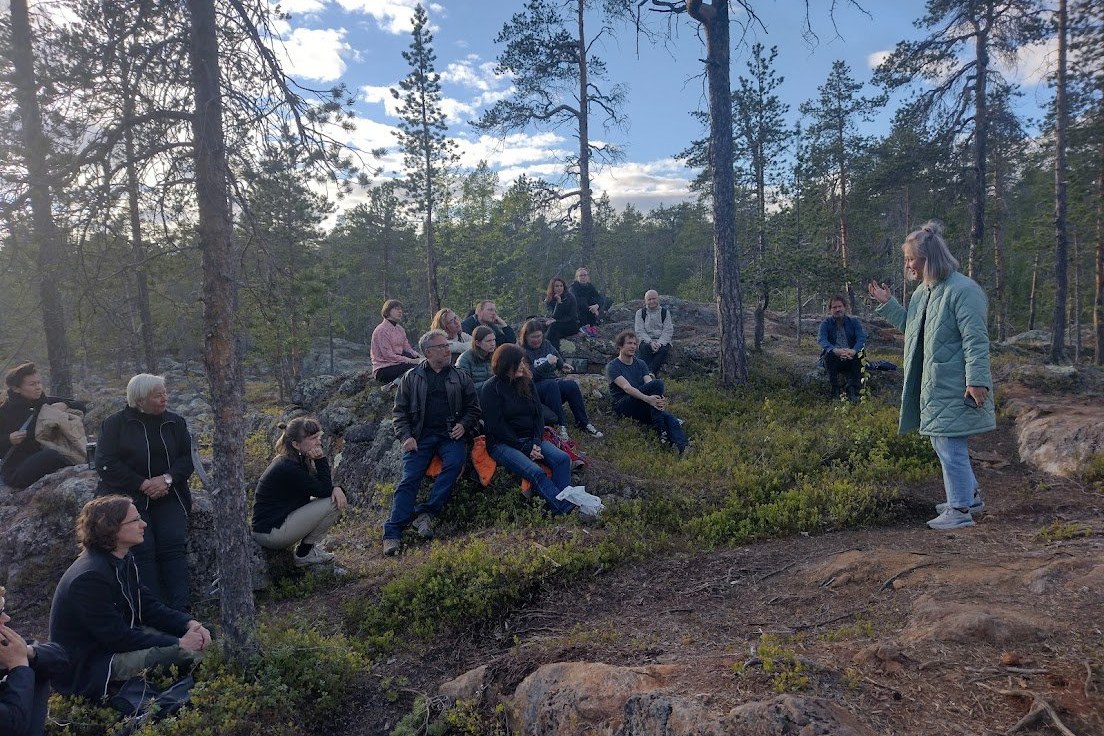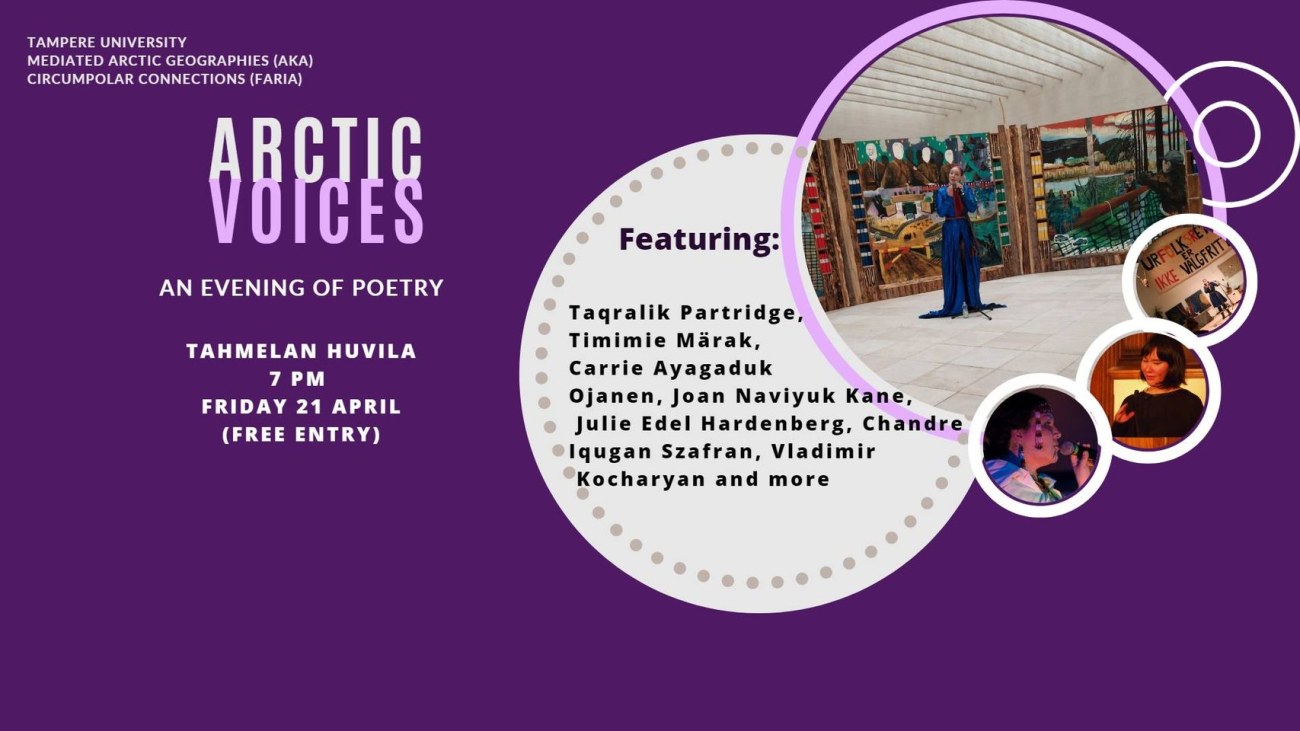Listening to voices from the Arctic – increasing equality through fiction and art

Mediated Arctic Geographies is an interdisciplinary project that explores how Arctic geography is imagined in twenty-first-century culture – from literature, film and TV series to comics, cartography, and hip hop. The project is led by Johannes Riquet, who is a professor of English Literature at Tampere University.
The researchers in the group are Post-Doctoral Researcher Liisa-Rávná Finbog, who is a Sámi archaeologist, museologist and duojár, University Lecturer Markku Salmela, who writes about imaginaries of the Arctic underground, and Doctoral Researcher Jenni Ylönen, whose PhD thesis focuses on Arctic rivers in literature and cinema. The project also has a large network of Indigenous and non-Indigenous international collaborators.

Cultural and aesthetic perspectives shape how we see the Arctic
Riquet has long been interested in the Arctic. In 2011 he started learning Kalaallisut (Greenlandic) and went on a longer trip to Greenland – where he had dinner with and camped in the former prime minister’s backyard without at the time knowing who he was. The personal connection with the Arctic also led to Riquet’s academic interest in the region and eventually to the Mediated Arctic Geographies research project.
“The Arctic is a hot topic in global geopolitics and debates about climate change, resource extraction and new shipping routes in a warming polar ocean. Most Arctic research focuses on topics like natural science or infrastructure”, Riquet explains.
“Cultural and aesthetic perspectives on the Arctic are all the more important because old stereotypes about the far North continue to shape how people in the South think about the circumpolar world. It matters, for example, whether an icy landscape is imagined as an empty and deadly wilderness as in colonial and Cold War narratives or as a multidimensional space full of life as in Inuit stories and films”, Riquet continues.

Imagining space and geography is deeply political
Riquet’s interests in imagining space and geography also guide the work of the research group Spatial Studies and Environmental Humanities. In the group, researchers work in literary studies, architecture, and other fields. The research topics of its members range from for example climate fiction and watery geographies to literary urban studies. In the last years, one topic has risen to prominence: the study of Arctic imaginaries.
“The difficulties in establishing the Finnish Truth and Reconciliation Commission Concerning the Sámi People and the recent suspension of the long-needed reform of the Sámi Parliament Act show that Indigenous stories about Arctic homelands are still far from being heard in Finland, and elsewhere”, Riquet points out.
For Riquet, fiction is inherently spatial and allows analyzing the social and cultural dimensions of space:
“How we imagine space and geography is deeply political, and fiction allows us to question and change these imaginaries. Fiction and art can show us different ways of imagining geography, which is especially important when one way of viewing the world is so dominant that it takes over and silences others.”
Right now, Riquet is planning, together with Finbog and the Inupiaq poet Joan Naviyuk Kane, a book that connects more than 30 Indigenous Arctic writers and visual artists from Sápmi, Greenland, the Canadian Arctic, Alaska, and the Republic of Sakha as well as a group of academics from around the world.
The book is a continuation of the project’s first book, The Mediated Arctic: Poetics and Politics of Contemporary Circumpolar Geographies. The new book project is called Circumpolar Connections: Creative Indigenous Geographies of the Arctic, and its premise is that artists are producers of geographical knowledge.
“The book will be multilingual. The languages include, among others, English, Kalaallisut, Sámi, Danish, Sakha, Russian and Eyak. The book is about experiences and conceptions of space and geography in the circumpolar North”, Riquet says

Arctic voices can be heard in Tampere on Friday 21 April
On Friday 21 April 2023, the Arctic Voices event provides a unique opportunity to hear poets from all over the Arctic. Some of them have travelled from very far. The Inupiaq poet Laureli Ivanoff had the longest journey: she travelled all the way from Unalakleet on Alaska’s west coast.
The event is an evening of poetic performances and readings featuring poets and word warriors Taqralik Partridge (Nunavik), Timimie Märak (Sámi), Carrie Ayagaduk Ojanen (Inupiaq), Joan Naviyuk Kane (Inupiaq), Julie Edel Hardenberg (Greenland), Chandre Iqugan Szafran (Inupiaq), Vladimir Kocharyan (Sakha) and more.
It is a homage to the strong practice of orature, oral literature and poetry in Arctic Indigenous cultures. The audience will have a chance to hear what the Arctic means to the poets and their communities.
“Making Arctic voices heard in their plurality and diversity is what our new book and the whole project are truly about. We work for the benefit of Arctic communities, circumpolar alliances, and global audiences. If we want to truly change and pluralize the way we imagine the Arctic, we need to listen to the voices and stories of those who call it their home and have done so for thousands of years”, Riquet emphasizes.
“Arctic Voices” takes place on Friday 21 April, from 19:00-21:00, at Tahmelan Huvila. Entry is free. More information on the event.





